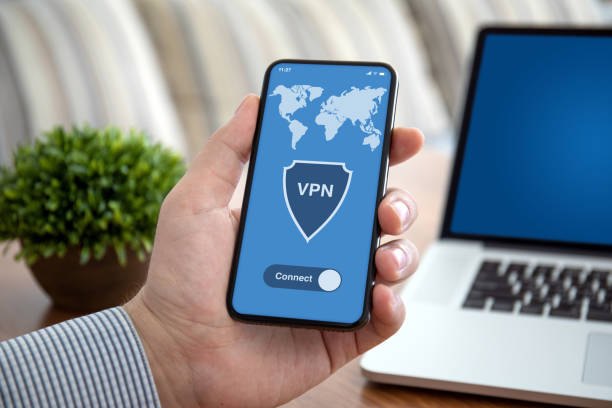- December 17, 2024
- Uncategorized
Mobile Proxies and Residential Proxies: A Comprehensive Analysis for Facebook and Social Media Applications

For controlling online activity on sites like Facebook and other social media networks, mobile and home proxies are crucial tools. By hiding their true IP addresses, these proxies allow users to remain anonymous and get around limitations. Mobile proxies are very dependable for jobs like managing several social media accounts or secretly scraping data because they use IPs that are provided by mobile providers. In a similar vein, residential proxies provide authenticity and lower the possibility of bans by using IPs associated with actual residences. Marketers, companies, and developers frequently use both kinds of proxies to improve performance, guarantee security, and optimize social media tactics.
Mobile Proxies: Definition and Operation
Mobile and residential proxies both play critical roles in maintaining online anonymity, but it’s equally imperative to be vigilant about potential threats that can compromise security. Leveraging advanced techniques to detect IP-based threats can offer enhanced protection against cyber risks and ensure the integrity of online operations. Addressing IP intelligence is vital for mitigating such vulnerabilities, especially when executing complex tasks like social media automation, data scraping or market research.
Mobile proxies assign IP addresses associated with mobile carriers, such as those linked to 3G, 4G, or 5G networks.
These proxies route internet traffic through devices or servers connected to mobile networks, using IPs dynamically assigned by the carrier. This dependence on mobile network infrastructure provides these proxies with a unique level of legitimacy and flexibility.
How It Works
Mobile proxies work by connecting to cellular networks. Every device in a mobile network is assigned a unique IP address, which changes frequently because of carrier-grade Network Address Translation, or CG-NAT.
CG-NAT enables multiple devices to share the same public IP, making mobile IPs more dynamic and harder to trace.
Mobile proxies are usually provided through SIM cards or by utilizing P2P networks, in which the mobile devices of users act as proxies in return for some incentives, such as free apps or a discount on subscription fees.
This kind of decentralized model contributes an additional layer of complexity for websites in identifying or blocking such proxies.
Use Cases
The unique characteristics of mobile proxies make them ideal for several specialized purposes:
- Social Media Management: Platforms like Instagram, Facebook, and TikTok often impose strict rules on account management. Mobile proxies provide the legitimacy required to manage multiple accounts without detection.
- Bypassing Captchas and IP Bans: Due to their association with legitimate mobile carriers, these proxies are less likely to trigger security mechanisms, making them suitable for high-risk tasks.
- Localized Testing: Businesses can use mobile proxies to test mobile apps, websites, or advertisements in specific regions or networks.
- Fraud Prevention and Bot Detection Avoidance: The high trustworthiness of mobile IPs makes them useful in avoiding fraud detection systems and maintaining anonymity.
Residential Proxies: Definition and Operation
Basic Concept
Residential proxies work by providing IP addresses that are associated with physical locations. The IPs are provided by ISPs and, thus, are attached to real residential addresses.
Therefore, they have a high level of credibility and are less likely to be flagged or banned by online systems, which identify them as legitimate user IPs.
How It Works
With a residential proxy, the internet traffic is channeled through a server whose IP address is a residential IP address. It ensures that the outgoing traffic will appear to be from a real household and not a data center or corporate network.
Residential proxies achieve this either through partnerships with ISPs or in P2P networks where users have chosen to share their bandwidth and IP addresses.
Residential proxies are often static or rotating.
Static residential proxies maintain the same IP address throughout the session, while rotating residential proxies periodically change their IPs for additional anonymity and prevention of detection. Use Cases Residential proxies have a variety of uses but are used primarily in places where legitimacy is crucial:
- Web Scraping: Many websites impose severe restrictions on the rate of automated traffic. Residential proxies support your effort to bypass such systems as they mimic genuine behavior.
- Ad Verification: This helps companies ensure that nobody-from competitors to any potential wrongdoers-is clicking or artificially inflating the traffic.
- Market Research: Companies use residential proxies for analyzing e-commerce markets for prices and offerings without raising suspicions, banning, or otherwise signaling it’s a bot.
- Accessing Geo-Restricted Content: They allow users to bypass regional restrictions and access localized content or services.
Residential proxies work well in use cases where authenticity and long-term sustainability are key, as they tend to have a lower risk of detection compared to other types of proxies.
Comparative Analysis: Residential Proxies vs. Mobile Proxies
Credibility and Trustworthiness
Both residential and mobile proxies provide high credibility because of their attachment to real ISPs or mobile carriers.
Mobile proxies, however, have an extra advantage in this regard since they are attached to mobile network operators and take advantage of the inherent trust most online systems have for mobile traffic.
IP Rotation and Anonymity
Mobile proxies are much better at dynamic IP rotation due to CG-NAT and provide a higher level of anonymity and resilience against detection.
Residential proxies are available in both static and rotating forms and, therefore, can offer more flexibility for long projects where a consistent IP is needed.
Scalability and Cost
Residential proxies are generally cheaper and more scalable than mobile proxies, which are resource-intensive to maintain since they rely on mobile networks. The justification for the higher costs of mobile proxies is in use cases where advanced anonymity and reliability are crucial.
Detection and Blocking Risks
Both proxies have a lower risk of detection compared to data center proxies. In any case, mobile proxies are more difficult to detect because their IPs are shared among many devices, and hence it will be hard for websites to filter out single users.
Applicability
While residential proxies are more suited to tasks that require stable IPs and consistent access, mobile proxies are better for high-risk or dynamic tasks such as social media automation, localized testing, and circumventing advanced security measures.
Supply and Demand Dynamics
Conclusion: Choosing Between Residential and Mobile Proxies
The choice between residential and mobile proxies depends on the very specific needs regarding budget, anonymity, and scale of operation.
Residential proxies provide a cost-effective and versatile solution to tasks where stable and authentic IPs are needed. On the other hand, mobile proxies have better reliability and evasion, making them indispensable in high-risk operations and dynamic tasks.
Both of these types of proxies show how digital privacy and operational efficiency continue to take shape. As businesses and people look for ways to go around the internet in ways that are new, using each will continue to be key to understanding the strengths and weaknesses of each proxy.
Share it with your friends!
Explore
More
Ready to get started?
Harness the unmatched capabilities of ActionSprout to transform your Facebook strategy. Elevate engagement, captivate your audience, and achieve unparalleled results. Don’t wait – seize the opportunity.

